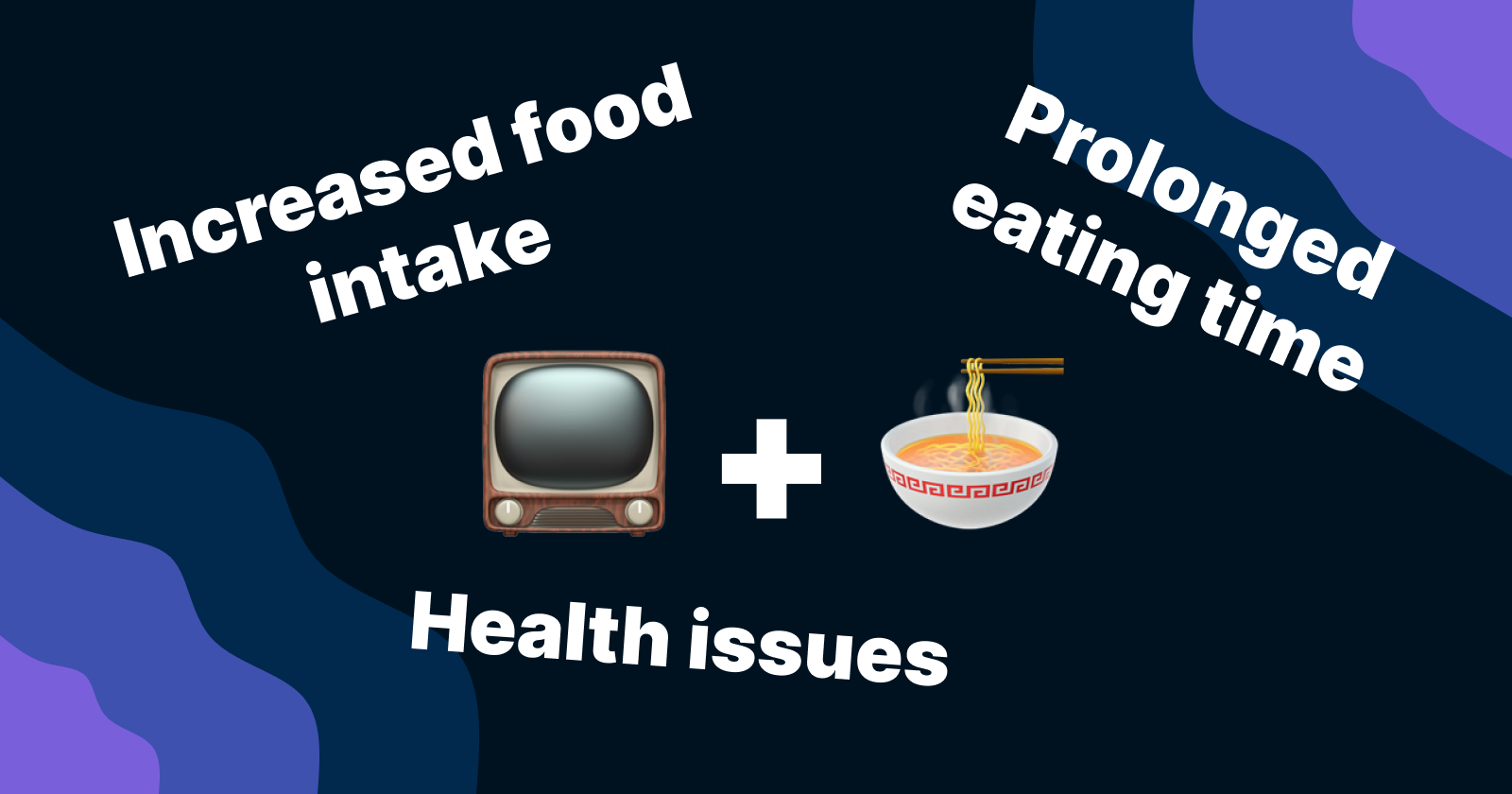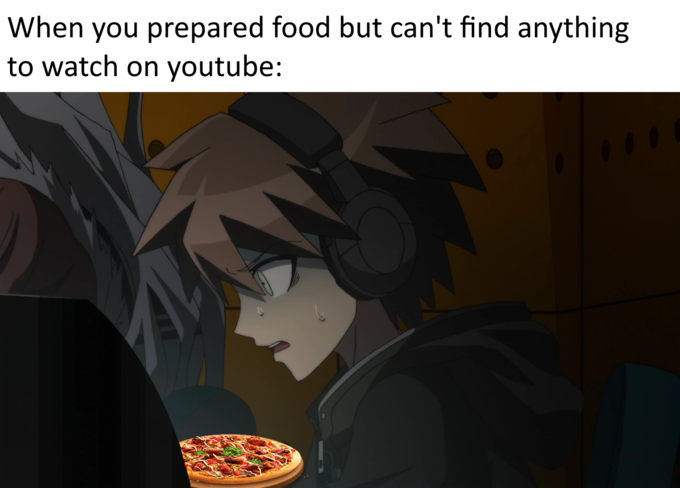Why you shouldn’t eat while watching YouTube
 Samy Osmium
Samy Osmium

I do it, you do it, we all do it. After the meal is ready, we look for the perfect YouTube video to complement our eating, sometimes even until the food gets cold. As ubiquitous as it is, the practice isn't commonly questioned. Except, maybe, we should; is it actually safe to eat and watch YouTube at the same time?
Dangers of eating distracted
Increased food intake
In front of a YouTube video, somes studies have suggested that we tend to overeat. That is, we tend consume more than we would have otherwise.
Studies such as that of Suzanne Higgs in 2009 in which scientists laid to 16 young women plates of cookies to eat during two different sessions, one with TV on and one without TV. Their goal was simply, they wanted to understand how our eating behavior changed with and without something to distract us. They had hypothesized that people ate more when they weren't paying attention. And that is exactly what their studies went on to show. When the participants were were viewing TV, they ate more cookies than when they weren't watching anything. Suzanne goes on to explain this by the fact we don’t think of the food we eat or the fullness cue we feel when we have eaten enough when distracted. As such, we continue to eat even if we don’t need to.
Moreover it has been suggested that memory formation is impaired when watching videos and eating at the same time. Therefore, we sometimes forget we have eaten or underestimate the extent to which we have, leading us to come back for more meals despite it being unnecessary.
Prolonged time eating
It’s a recurring event for me to snack up before watching a movie but to eat all the snacks imprudently while exploring the catalog, so before even starting the film. Still, my watching needs to be accompanied by an eating, so I go back to my kitchen to restock.
But why? Why do I want that? What difference does it make if the snacks are eaten before, during or even after the movie?
In truth, there isn’t. We simply built the habit and now movie sessions are also snacking sessions, but this isn’t healthy. Moreover, because we usually want the nibbling to last as long as whatever we are watching, we repeatedly get more to eat over the course of sometimes hours.
Benefits of eating mindfully
Mindful eating is the practice of, well, eating but more consciously so as to have a greater control over your food consumption habit. Fundamentally, it involves the following:
Eating slowly; so as to be more rational about what you are doing and ensuring you don’t go overboard or make bad decisions. Moreover, it’s to give your brain time to register the food you are eating, thus to properly feel full.
Eating without distraction; to give more focus to your food and what you are actively doing to be more able to think more clearly about your actions and to properly deal with your food.
Paying attention to your brain’s hunger cues; not to eat more than you need to all the while better understanding how food makes you feel. Moreover, it helps distinguish between false emotional-based hunger and the real physical hunger.
What does it bring more than distracted eating?
A better understanding of when to stop eating
It helps us distinguish between false and true hunger
It empowers you with more control over your eating
It helps greatly with weight loss
Greek Mythology Story
Let us look at the past for more wisdom because there is a funny (and gruesome) tale in Greek mythology of a god eating the shoulder of a boy due to distraction.
Tantalus, son of Zeus, was skeptical of the gods' omniscience. So he wanted to conduct a little experiment to gauge the extent of their all-knowingness. In it, he cut up his son, Pelops, boiled him, and served him in a banquet to the gods to see if they would understand what they were truly eating. None of them ate, having realized the trickery except Demeter, who was distracted by the recent loss of her daughter Persephone, leading her mind to wander, and eat part of Pelops' shoulder.
So there you have it, don’t eat distracted!
Takeaway
All in all, as prominent as it may be, crunching food while watching YouTube might not be as harmless as it seems. The alternative, mindful eating, even presents some noteworthy benefits such as greater control of one’s eating habit. While there isn't a universal bad consequence if you do consume videos and food at the same time, you should still consider if the negative effects are aligned with your own personal goals.
Subscribe to my newsletter
Read articles from Samy Osmium directly inside your inbox. Subscribe to the newsletter, and don't miss out.
Written by
